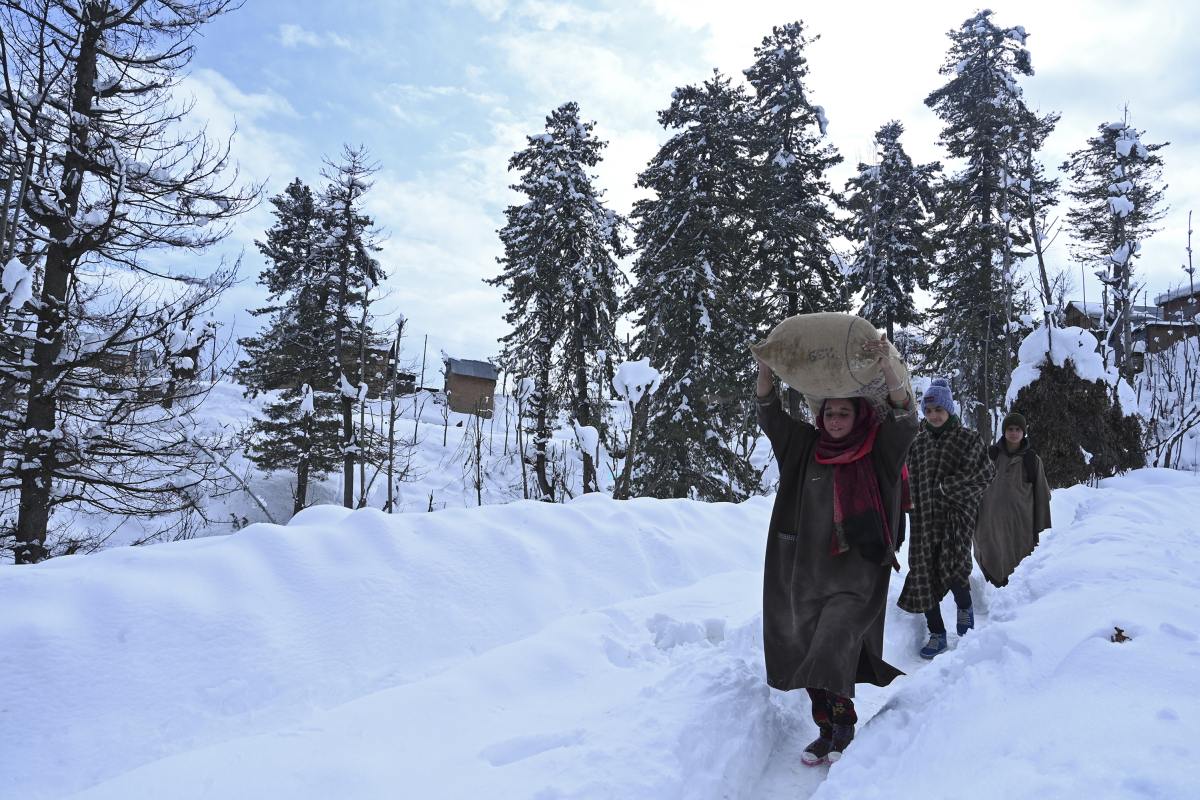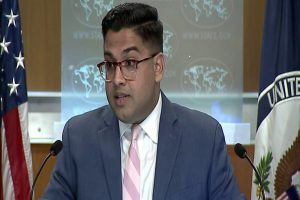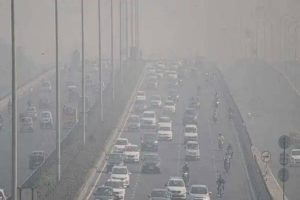The Central government on Wednesday issued a gazette notification announcing a slew of amendments to 138 Acts of Jammu and Kashmir that include protecting jobs up to Group-4 (equivalent to the rank of constable in police parlance) for only those who are domiciles of the union territory.
According to the latest order, any person who has resided in Jammu and Kashmir for a period of 15 years will now be deemed as domicile of the union territory. Children of all-India services personnel who have served there for 10 years also come under the category.
The notification said among the laws amended is the Jammu and Kashmir Civil Services (Decentralisation and Recruitment) Act.
The government has issued new domicile laws for the residents over eight months after the abrogation of Article 370 and bifurcation the erstwhile state into two union territories.
J&K Civil Services (decentralisation and recruitment) Act defines a domiciled person, as the one who has resided for a period of 15 years in the UT of Jammu and Kashmir or has studied for a period of seven years and appeared in class 10 or 12 examination in an educational institution located in the UT.
This comes amid significant developments in the Valley such as release of former chief ministers Farooq Abdullah and Omar Abdullah which points towards easing of political norms in the region. The Centre’s move to now highlight domicile rules marks a significant administrative change as well.
A person will also be deemed domiciled if they are registered as migrant by the relief and rehabilitation commissioner in the union territory.
The definition under Section 3A also includes children of those Central government officials, all India services officers, officials of PSUs and autonomous body of Central government, public sector banks, officials of statutory bodies, officials of central universities and recognised research institutes of Central government “who have served in Jammu and Kashmir for a total period of ten years or children of parents who fulfil any of the conditions in sections.”
“Children of such residents as reside outside UT of J&K in connection with their employment or business or other professional or vocational reasons but their parents fulfil any of the conditions provided earlier,” the definition further added.
Tehsildar within his territorial jurisdiction shall be competent authority for issuance of domicile certificate, the provisions of the Act further stated.
Section 5A of the Act further stated that “no person shall be eligible for appointment to a post carrying a pay scale for not more than level four unless he is a domicile of union territory of Jammu and Kashmir.”
The Centre’s redefinition of a domicile marks a complete departure in norm that was earlier held in the erstwhile state, previously under Article 370 and Article 35A.
Prior to this, 35A of the Constitution of J&K empowered it to define a resident.
Meanwhile, former Jammu and Kashmir Chief Minister Omar Abdullah has termed the government’s move to rework the domicile law as an “insult”.
“Talk about suspect timing. At a time when all our efforts & attention should be focused on the #COVID outbreak the government slips in a new domicile law for J&K. Insult is heaped on injury when we see the law offers none of the protections that had been promised,” he tweeted.
Abdullah said that the recently formed ‘Apni Party’, which the leader alleged was formed with the blessings of the Delhi, was critical of the changes in the law.
“You can imagine how hollow the domicile law is from the fact that even the new party created with Delhi’s blessings, whose leaders were lobbying in Delhi for this law, have been forced to criticise the #JKdomicilelaw,” said the NC leader in another tweet.
Jammu and Kashmir Apni Party (JKAP) president Altaf Bukhari has alleged that the Centre’s order on domicile rules in the union territory was a “casual” and “cosmetic” exercise to “hoodwink” the people of the erstwhile state.
He said being a government-issued order and not a law made by Parliament, the new gazette notification regarding domicile rules for Jammu and Kashmir was not immune to a judicial review.
“While JKAP had been vehemently demanding domicile rights on land and jobs for the people of Jammu and Kashmir, the order issued by the union government reflects a casual exercise carried out at bureaucratic level without taking aspirations and expectations of people into consideration,” Bukhari said.
“The order issued is totally unacceptable to JKAP. In the matter of employment – non-gazetted, gazetted posts in the service and admissions to professional colleges, a tangible legal and constitutional mechanism was supposed to be put in place to safeguard and protect these privileges of the people of Jammu and Kashmir who had been the permanent residents of J&K,” he said.
Bukhari also demanded that the order be put in abeyance till the country is out of the dangers arising out of COVID-19.
“It is most unfortunate that such an important order has been issued at a time when the whole country is battling for its survival and is under strict lockdown to stem spread of the deadly coronavirus disease,” he said.
“This Order in its entirety is a casual attempt, cosmetic in nature, to hoodwink the people of Jammu and Kashmir who genuinely believed that post October 31, 2019 their rights and privileges in the matter of employment and other rights would remain as it had been (before abrogation of Article 370),” he said.
The JKAP president said the introduction of a clause to include those who have studied for a period of seven years and appeared in class 10th/12th examination in an educational institution located in the UT of J&K is totally contradictory and provides a tunnel for non-residents of J&K to easily encroach upon the job protections which were available to them prior to October 31, 2019.












